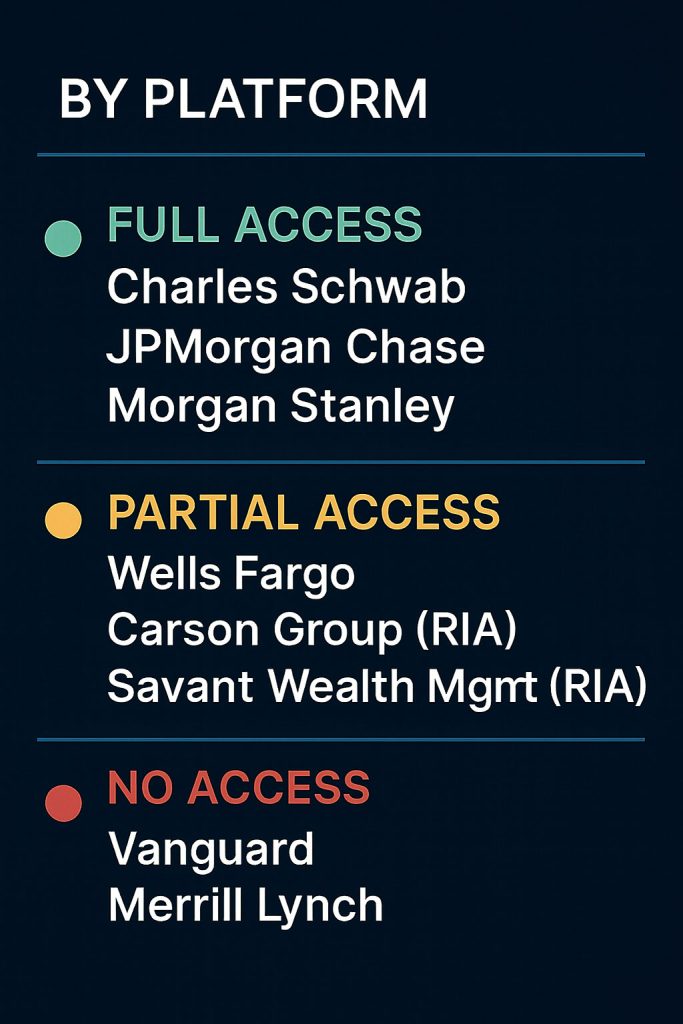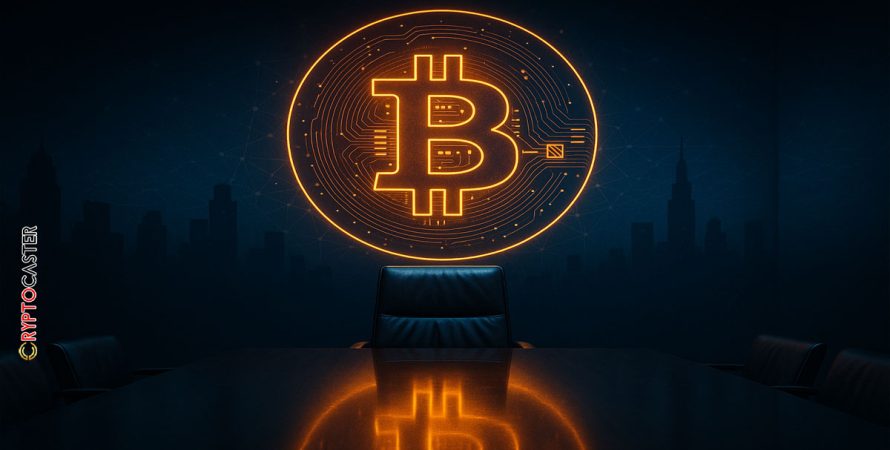The Opening Salvo
Washington’s newly appointed “crypto czar,” David Sacks, has made his first major move — and it’s a direct hit on some of the most powerful financial institutions in the country. In a pointed statement this week, Sacks accused big banks and wealth management platforms of “hiding behind compliance theater” to keep trillions in client assets away from Bitcoin ETFs, despite clear federal guidance permitting such access.
Stay in the know on crypto by frequently visiting Crypto News Today
His remarks follow mounting frustration from investors who, months after the launch of spot Bitcoin ETFs, still find themselves blocked by their own financial advisors or platforms. The stakes, Sacks said, are “not just about crypto — they’re about financial choice, innovation, and whether entrenched gatekeepers can defy the policy of the United States.”
CryptoCaster Quick Check:
The $31 Trillion Question
The number that keeps coming up is $31 trillion — the estimated value of assets held on platforms that either restrict or entirely block Bitcoin ETF purchases. This figure, popularized by research groups like Tephra Digital, is not an exact measure but a working estimate based on publicly disclosed AUM of large brokerage and advisory firms.
Many of these firms, from Vanguard to regional wealth managers, cite “risk management” as the reason for holding the line. Critics argue those risks are overstated — or selectively applied — especially now that multiple spot Bitcoin ETFs are SEC-approved and trade on regulated exchanges.
Policy and Legal Backdrop
The OCC’s interpretive letters — including the influential Letter 1184 — already clarified that banks can provide custody for digital assets, buy and sell crypto on behalf of customers, and even partner with third-party providers to manage such services.
Earlier this summer, the White House released a digital-assets policy framework encouraging greater integration of compliant crypto services into the financial mainstream. A recent executive order on “de-banking” explicitly warns against denying lawful financial services for political or reputational reasons.
For Sacks, that’s the crux: “The law says you can. The administration says you should. The customers say they want it. So why are they still saying no?”
Bank Defenses and Strategic Caution
Privately, many bank compliance teams point to liquidity risk, volatility, and regulatory uncertainty as justifications. There is also a competitive angle: Bitcoin ETFs could draw capital away from in-house products with higher fees.
Some advisors note that while ETFs are easier to integrate than direct Bitcoin, there’s still a layer of due diligence and operational testing that takes time — particularly for platforms with older infrastructure.

Who’s In and Who’s Out
While holdouts dominate headlines, some institutions have quietly opened access. Certain brokerage firms now allow Bitcoin ETF purchases for self-directed accounts while still restricting advisor-led transactions. Others are piloting crypto-friendly platforms targeting high-net-worth clients.
A patchwork map is emerging:
- Full Access: Smaller, tech-forward brokerages and some regional banks.
- Partial Access: Large firms allowing self-directed but blocking advised purchases.
- No Access: Major legacy wealth platforms citing compliance or “client best interest” rules.
The Market Impact
The access issue has real consequences for Bitcoin ETF flows. Even with partial adoption, inflows have been strong — but analysts believe the removal of platform bans could unlock billions in new capital within months.
If the $31 trillion in restricted assets even partially flowed into Bitcoin ETFs, it could create one of the largest liquidity events in digital asset history.
The Political Signal
Sacks’ comments were not just about market mechanics — they were a political shot across the bow. The crypto czar role itself was created to coordinate digital asset policy across agencies, but this latest push positions the office as a direct counterweight to traditional banking resistance.
The underlying message: policy alignment is no longer enough; execution must follow. The administration appears ready to use both persuasion and pressure to make that happen.
What Comes Next
Analysts expect the coming months to bring a combination of:
- Regulatory clarification — tightening the gap between permission and execution.
- Platform innovation — new fintech-banking partnerships to bypass legacy bottlenecks.
- Public campaigns — pushing investor awareness of access rights and platform restrictions.
For investors, the message is clear: the political and regulatory climate has shifted. Whether Wall Street’s biggest players shift with it remains the open question.
If this article brought you clarity, insight, or value—support the work that made it possible.
At CryptoCaster, we report on Web3, crypto markets, and institutional finance with no billionaire owners, no shareholders, and no hidden agenda. While mainstream media bends toward Elon Musk, BlackRock, and JPMorgan narratives, we stay focused on what matters: truth, transparency, and the public interest.
We don’t just cover the headlines—we investigate the power structures behind them. From FTX and Ripple to the quiet push for CBDCs, we bring fearless reporting that isn’t filtered by corporate interests.
CryptoCaster is 100% paywall-free. Always has been. To keep it that way, we depend on readers like you.
If you believe independent crypto journalism matters, please contribute—starting at just $1 in Bitcoin or Ether. Wallet addresses are below.
Your support keeps us free, bold, and accountable to no one but you.
Thank you,
Kristin Steinbeck
Editor, CryptoCaster
Support CryptoCaster: The Unfolding of Money
At CryptoCaster.world, we’re dedicated to bold journalism, sharp insights, and fearless commentary across blockchain, Web3, and crypto markets. Your **Bitcoin contributions** help us stay independent and continue delivering signal over noise.
🚨 CryptoCaster does not offer investment advice. Always DYOR—volatility is real, and risk tolerance matters.
Support our mission. Contribute BTC today.
🔗 Bitcoin Address:
3NM7AAdxxaJ7jUhZ2nyfgcheWkrquvCzRm
Thank you for backing our journalistic lens as we chronicle the Unfolding of Money — a saga still being written in real time.![]()
CRYPTOCASTER HEATMAP







